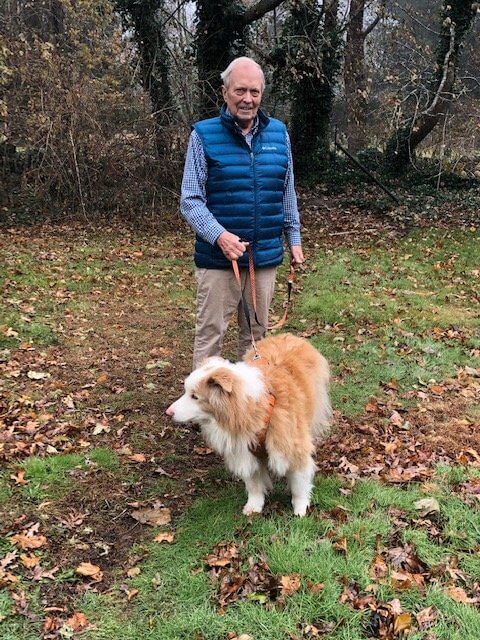Retired teacher Brad Davis doesn’t like talking about his cancer — not because he’s ashamed of it, but because he’s been able to move on from it. That wasn’t always guaranteed: While Davis is thriving on his current treatment plan, he was facing a much different scenario just one year ago.
In 2018, Davis was diagnosed with metastatic stomach (also known as gastric) cancer. The news came as a complete shock to Davis, who received his diagnosis after going to the hospital for what he thought was just pneumonia and hip pain. When his blood tests revealed he had anemia, a condition in which the blood does not have enough healthy red blood cells, doctors did a complete work-up. They then discovered the tumors: Davis’ gastric cancer had spread to his lymph nodes and peritoneum, the tissue that lines the abdominal wall.
While he was originally referred to his local cancer center, Davis was adamant: He wanted to go to Dana-Farber/Brigham and Women’s Cancer Center (DF/BWCC). There, he was placed under the care of Kimmie Ng, MD, MPH, director of Clinical Research at the Gastrointestinal Cancer Center at DF/BWCC.
“When I heard I had cancer, I wanted the best when it came to my care,” says Davis. “Everyone here has been spectacular. I’ve never felt nervous because they’ve always addressed any concerns I’ve ever had.”

A targeted treatment
To help determine the best treatment plan for Davis, Ng wanted to genetically profile his cancer, which is conducted through a biopsy. The test revealed Davis had a HER2 (human epidermal growth factor receptor 2) amplified tumor; in other words, the tumor cells contained too many copies of the HER2 gene. While the HER2 overexpression is typically associated with breast cancer, it is also found in 15% of stomach cancers and nearly 5% of colon cancers.
Armed with this information, Ng started Davis on a plan consisting of FOLFOX (fluorouracil, leucovorin, and oxaliplatin) chemotherapy and trastuzumab, a drug that targets the HER2-positive receptor. Since starting therapy in April 2018, Davis’ response has been remarkable: The tumors have shrunk quickly and dramatically, meaning Davis no longer suffers any cancer-related symptoms.
“It has been absolutely amazing, and something we don’t often see. He came to us with huge tumor masses that have now just melted away,” Ng says.
Because Davis has both responded so well, and has not experienced any side effects, he’ll stay on the treatment plan for the foreseeable future.
Getting back to what he loves
Today, Davis can typically be found reading a book or going on a long walk with his dog. He’s also the proud grandfather of nine grandchildren, and every once in a while, he’ll hear from a former student.
While you won’t catch him talking much about his cancer, the retired teacher is always happy to share his knowledge on world history, discuss a piece of classical music, or go through his photographs with you from his trips to Europe. He credits his care team for making it possible for him to get back to what he loves most.
“Dr. Ng and her team are remarkable,” says Davis. “I feel they truly care about me and are concerned for my wellbeing.”
